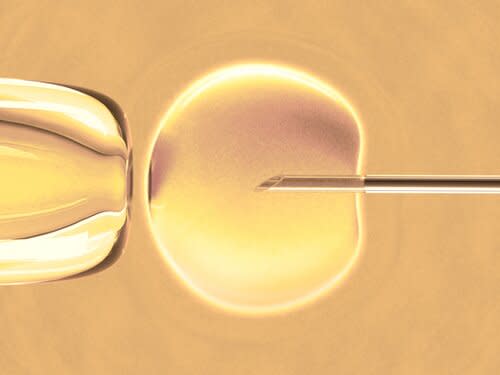Study: More Embryos Not Necessarily Better in IVF

Patients who undergo in vitro fertilization (IVF) to achieve pregnancy are no more likely to succeed if they have 3 embryos transferred than if they have 2 transferred, a new study published in the journal Lancet has found. The Associated Press reports that the study found that higher numbers of embryo transfers leads to higher rates of multiple births, which are risky for both mothers and babies.
One particularly interesting finding of the study was that women under age 40 who had 3 embryos transferred actually had a lower rate of live births (25 percent) than women who transferred 2 embryos (33 percent). Researchers hypothesize that this finding is due to the higher risk of miscarriage when women are carrying multiples--if one fetus miscarries, the whole pregnancy can be lost.
"Women who have gone through infertility treatment want the best chance of having a baby, but we need to explain that the data shows transferring more embryos doesn't actually do that," said Dr. Scott Nelson, head of reproductive and maternal medicine at the University of Glasgow, who co-authored the study published in Thursday's issue of Lancet.
In Western Europe, where some countries pay for in-vitro fertilization, or IVF, many authorities recommend a single embryo transfer for women under 37 and a maximum of two embryos for women 37 to 40. For women over 40, three is often the limit by law.
In the United States, there are relatively lax guidelines and a lack of regulation. That country has seen a rise in multiple births, including the highly publicized case of Nadya Suleman, labeled the "octomom." She had octuplets in 2009 after her doctor transferred 12 embryos. She already had six children through IVF.
Most fertility treatment in the U.S. is paid for privately and can cost at least $10,000 per cycle, which experts believe encourages the use of more embryos in the belief it will improve odds.
The American Society for Reproductive Medicine recommends single embryo transfers for women under 35, but there is no enforcement of that. For women 35 to 37, they advise two to three embryos, and three to four embryos for women ages 38 to 40.
Image: In vitro fertilization, via Shutterstock.
